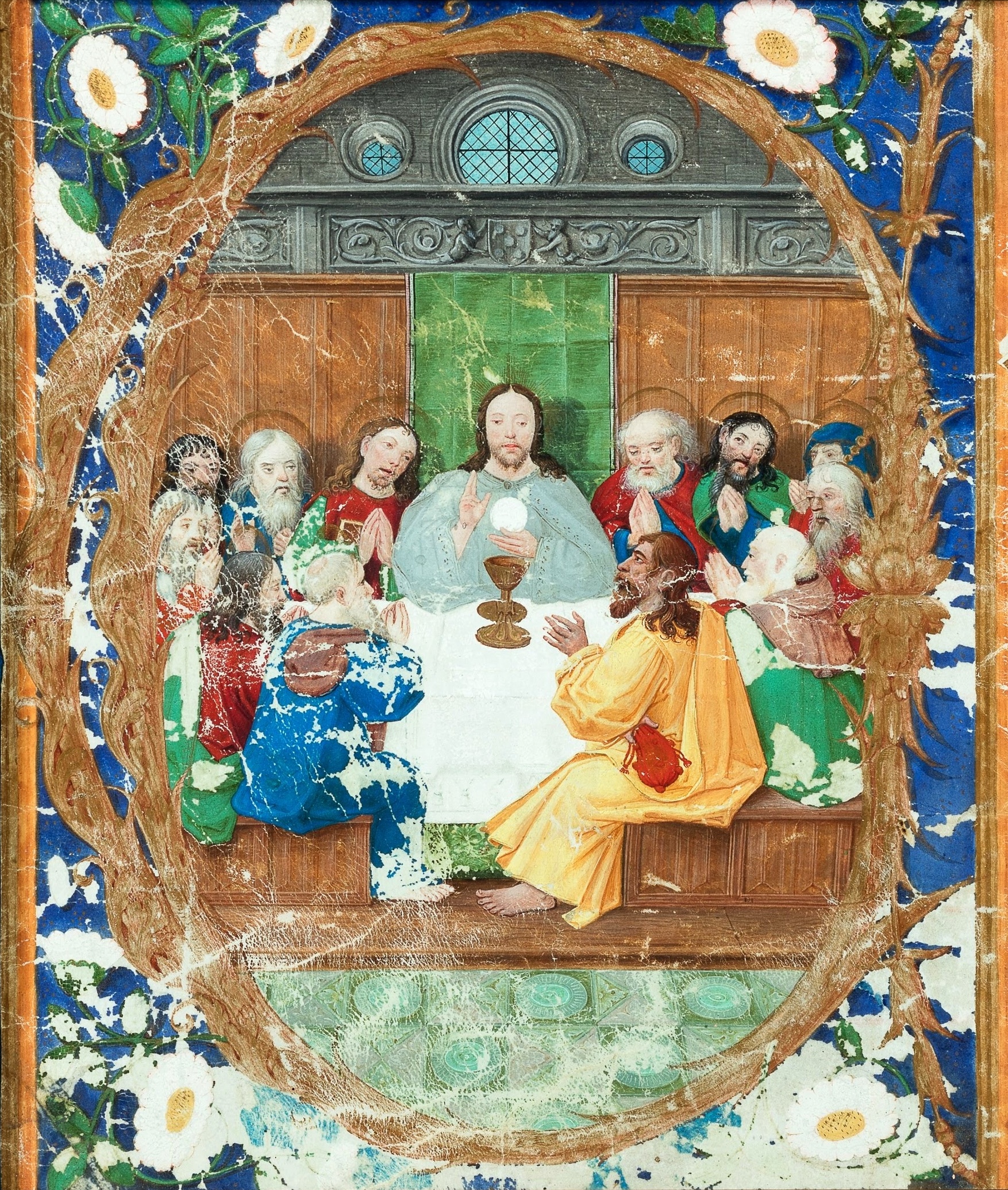Much of this they did not understand. Later, when the Spirit of truth came, He would guide them into the truth. Then they would see and understand: "A little while, and you will see me no longer; and again a little while, and you will see me" (John 16:16).
After Jesus' wonderful prayer to His Father (John 17:1-26), He went with them across the Kidron Valley to the Garden of Gethsemane to pray (John 18:1-2).
In all of this He says nothing about the Lord's Supper, mentioned so prominently in the other three Gospels. Or does He? Not in these chapters, but many feel that John records Jesus' teachings about the Supper in John 6 as He calls Himself the Bread of Life (John 6:48-51). In those verses He calls us all to look back to the story of ancient Israel's 40 years of wandering in the wilderness of Sinai. All through those years they survived by eating the strange food called manna. The word is a question in Hebrew meaning, "What is it?" They never knew. All they knew was that it was there every morning and that it kept them alive until they entered the land of Canaan (Exodus 16:31-35; Numbers 11:6-9; Joshua 5:12).
The manna was very humbling. It taught them that they were totally dependent upon God's mercy, forgiveness and blessing. His creative Word produced it for them. It was not of their doing. They could not reproduce it nor save it. When they did it became rotten, stank and bred worms (Exodus 16:20). No it was their daily bread, nothing more, nothing less.
So Jesus describes Himself as our Bread of Life. His flesh is food indeed and His blood drink indeed (John 6:55). His flesh is for the life of the world. He who eats of it will not die as did the Israelites in the wilderness. Instead he will live forever! (John 6:51). Hard to believe, but that is the promise.
On this Thursday Christians around the world recall Jesus' institution of His Supper. We do not try to provide logical explanations for the meal. We do not analyze it. That's not its purpose. It is and will ever be a mystery. We eat of this bread and indeed it is bread. We drink of the wine, fruit of the vine. But over these earthly things He speaks His Words, "This is my Body . . . This is my Blood." And we each individually are nourished again for our personal journeys. We are assured that our sins are forgiven, forgotten and removed. So we go forth from the Supper renewed, strengthened for the next leg of our journey. And all the while we are confident that though our bodies will perish another mystery awaits us. This perishable, mortal body will be changed and we will put on immortality. Death will be swallowed up in the victory that is ours in our risen Lord (1 Corinthians 15:51-58):
"Therefore, my beloved brothers, be steadfast, immovable, always abounding in the work of the Lord, knowing that in the Lord your labor is not in vain."

No comments:
Post a Comment
So what do you think? I would love to see a few words from you.